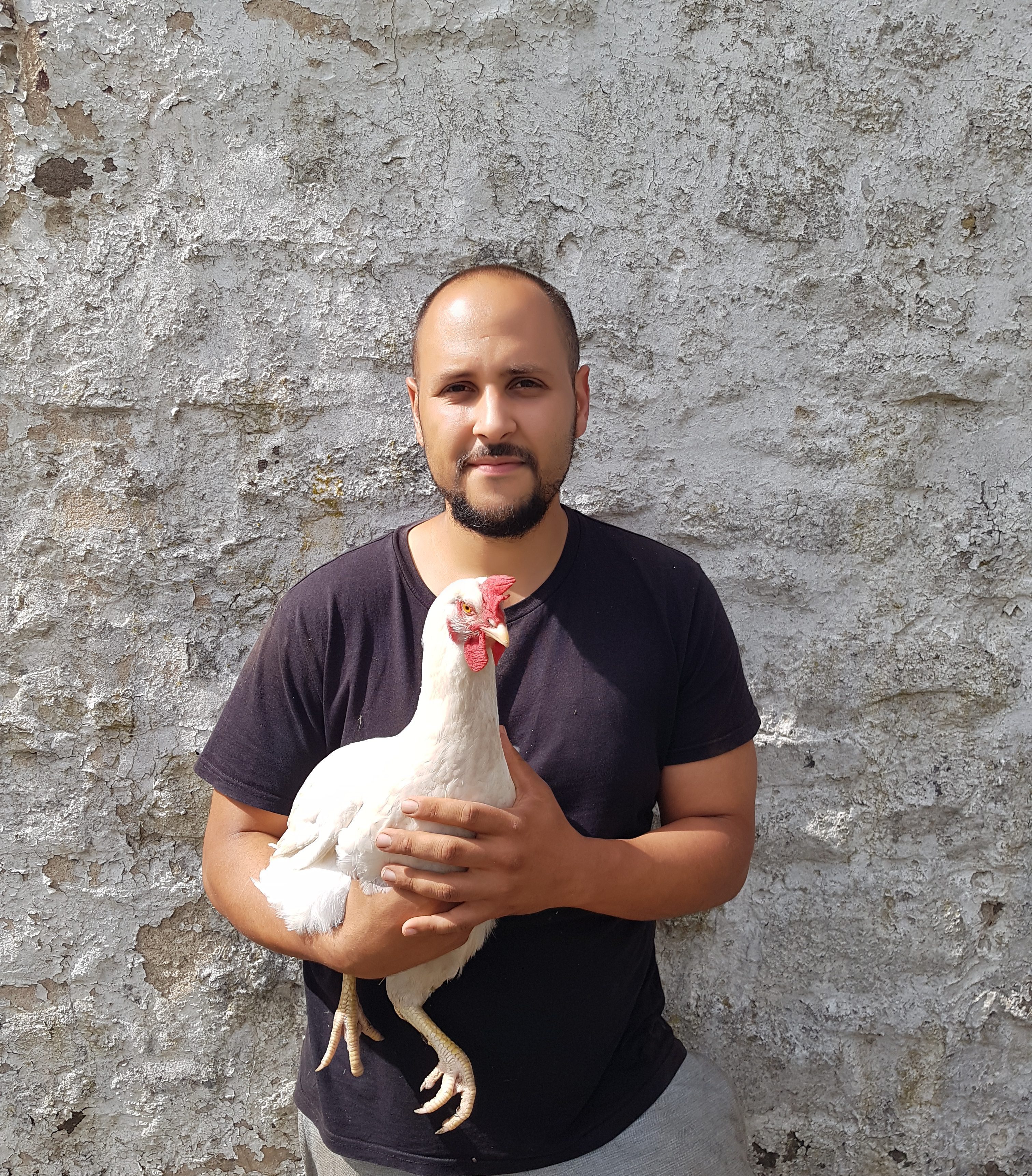Here at festival HQ we’re committed to introducing you to the people who make your food. We believe that when consumers understand the hard-work and passion that goes into making it, they’re more likely to value and use it well.
With that in mind we’re excited to bring you the first of our 2019 blog series “Shake the hand that feeds you” a collection of interviews with the best food producers, chefs, writers and farmers from across Wales.
In our interviews we’ll be asking what makes them tick, how they run their businesses, and what they’ll be bringing to #AFF2019.
First up, our Programme Co Ordinator Steph Wetherell has been talking to Muhsen Hassanin from Harmony Farm who will be taking part in our Food of the Islamic World discussion on Saturday 21st September.
Shake the hand that feeds you: Harmony Farm
Muhsen Hassanin runs Harmony Farm, a 55 acre-farm between Pontypool and Mamhilad in the Welsh Valleys. He moved to the farm four years ago with his sister, mum, wife and children and is working towards a self-sufficient life as well as aiming to supply food to the local community.
Tell me about the name of your farm
Living in Harmony with the environment and to respect nature’s perfect balance is something that is important to me as part of my Islamic faith. The word ‘misaan’ repeated many times in the Qur’an, means harmony and perfect balance and this is a driving principle of my small holding. The goal is to move more and more towards self-sufficiency, then to produce food that’s wholesome and nutritious for the community.
We’re implementing low input design along permaculture principles and trying to work with nature as much as possible. We’ve got solar power, a wind turbine and a biomass boiler too, so we’re looking to generate our own fuel as well as food
Can you describe the land to me?
We’re high up – on a good day I can see from Skirrid to the Severn. It’s a 55-acre farm, with 26 acres of pasture and mixed woodland, and another 29 acres of pure forest, much of which we replanted two years ago as a mixed broadleaf woodland.
What animals are you raising on the land?
We have poultry for home consumption – about 25 laying birds and some Muscovy ducks. What I like about Muscovy ducks is that they look after themselves – they’re really hardy and low maintenance and just go off and build a nest and breed without needing much support.
We’ve got a herd of five cows, as I need a herd of cows to regenerate the landscape and build soil carbon, hopefully using techniques like mob grazing. One of the cows is a dairy cow – a jersey – and she is pregnant at the moment, so I’m planning on working towards a raw milk micro-dairy.
We also grow vegetables for our own consumption – we’re aiming to produce 90% of the food we eat.
How did you first get interested in farming
I’ve always been interested! My mum reminds me that when I was a kid, I kept a potato in a cup until it sprouted then planted it. I’ve always been fascinated by agriculture and animals but felt like school pushed me away from it into the arts. But then, just out of interest, I started growing a few little bits. I was living in London at the time and before I knew it, I was gardening in four different places – it all started in terraced housing and flats! It’s amazing what you can do in a small space.
Then I did a Permaculture Design Certificate and watched lots of smallholding videos and thought it can’t be that hard! And it’s been hard, but I’m doing it.
What do you love about working on the land?
The land teaches you what to do. You learn to think in different ways – you’re not just outsourcing your information and getting other people to solve things. You’ve got to work out what materials you can use that are nearby. You have to think through what you can do and what you need help with.
What’s your favourite part of the farm?
If I sit back and think about what I enjoy the most, it’s sitting in the field with the dairy cow, relaxing. I’m really attached to her – I love her personality and watching her grow and develop and making sure she’s ok. Jersey cows are bred for you to fall in love with – they’re such beautiful animals.
You’re also trained as a slaughterman – how did that come about?
We’re fighting against the industrialised system where you don’t know what goes on behind the scenes at slaughterhouses. It’s not the slaughterhouse itself that is the problem – it’s the industrialisation of death that makes it such a hard place to be. Everything is about speed, numbers, quick turnover – it’s the fear of inspection rather than a deep inner morality that guides the hand of the slaughterman. A slaughterhouse is a decompartmentalised fragmented factory that reduces people to a specific job that is repetitive and generally low paid. Abuse happens with bad design and when human beings don’t feel value and purpose in what the work they do.
Halal slaughter has to be done with “Ihsan,’ which means with perfection or in a perfect way – many slaughterhouses try very hard to do this, but it’s not the same connection that one may have when taking a life of animal with the goal of doing it perfectly and not just quickly. With good sound design we hope to make death of animals swift and as painless as possible.
It’s been a real journey to be involved in the whole lives of the animals – from raising to slaughtering and butchering them – but it’s something I find very satisfying, controlling the whole chain. I find the slaughtering side very important because I know if someone else was doing it, they wouldn’t be doing it as well as me. I have a commitment morally to do this in the best possible way, and that means a very sharp knife, a clear mind and deep reverence for the animal.
What do you love about farming in Wales?
There’s only one other farmer who is farming organically around here. I have five neighbours within 1km and everyone has their own way of doing things, but everyone is supportive of what I’m doing. They’re not critical or mocking of me – they see me as the young, bright, optimistic farmer. There’s such a willingness to help and you can really call on your neighbours – I don’t know if that’s specific to this valley or Wales more widely but it’s great.


